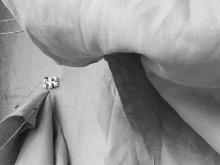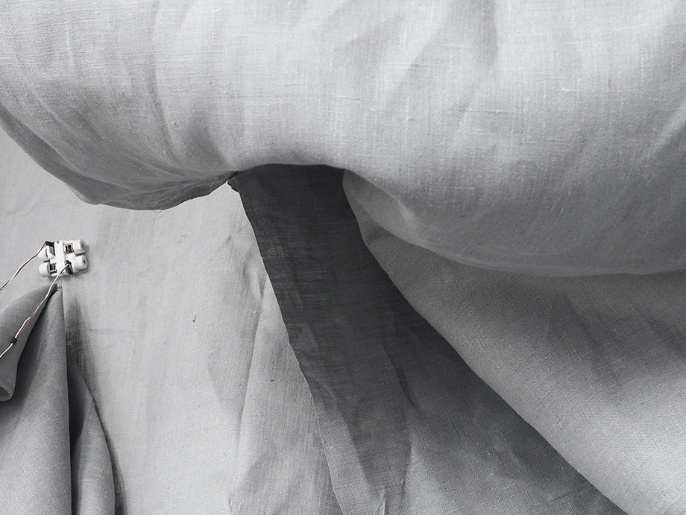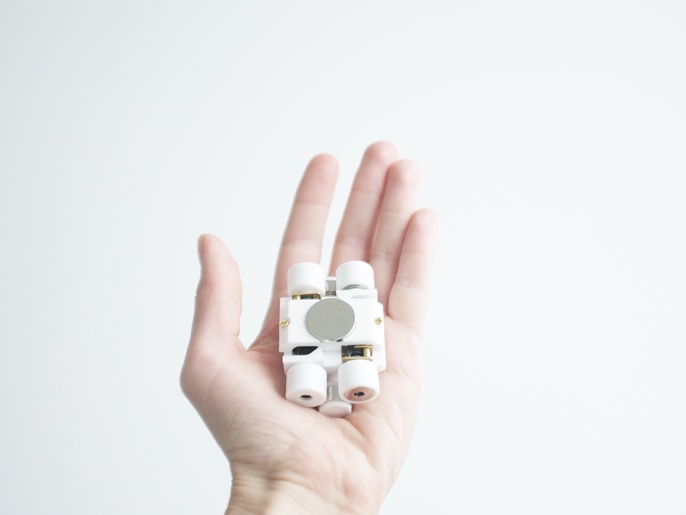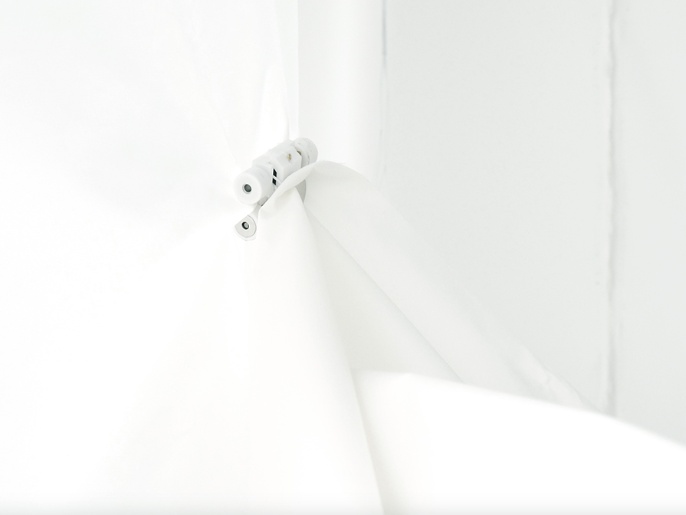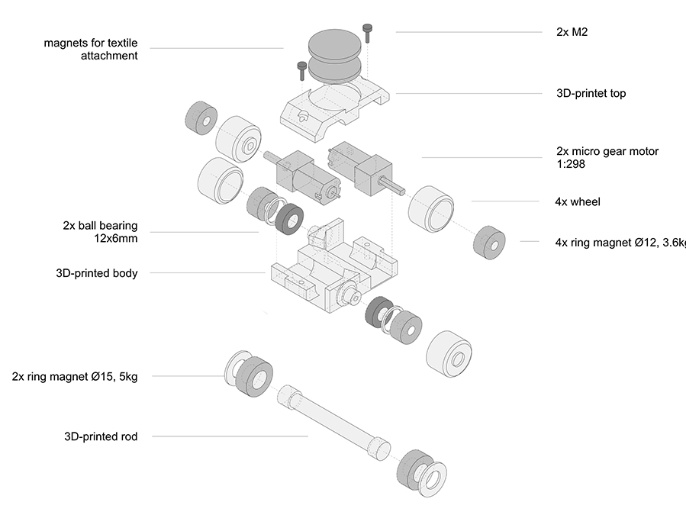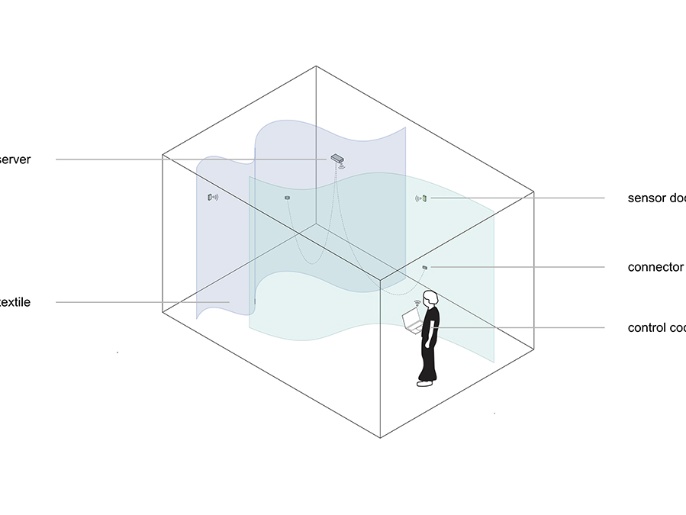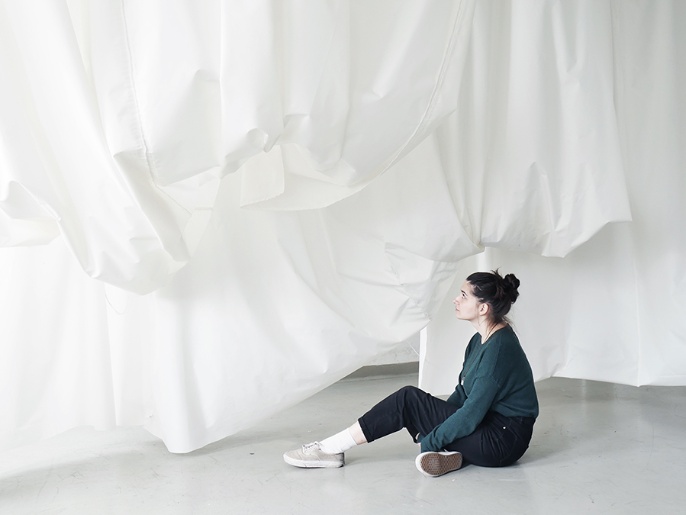Tailored to Time
Tailored to time explores how textiles can be formed into adaptive, kinematic spaces able to respond to its environment and users utilizing distributed, mobile robotic connectors. A common incentive for designing adaptive architecture is to save resources. However, many systems fall in the paradox of using a lot of it - both through production and maintenance. This master thesis aimed at developing an adaptive system that consumes little energy while making use of textiles’ advantageous qualities - their lightweight, deployability, and flexibility. What we often want to change about space are parameters such as light, acoustics, temperature and space division. Textiles can do this just by being present. By augmenting them with a movement capacity, one can further leverage the results that textiles offer towards scenarios where they can alter geometric and ambient characteristics of architectural space through continuous kinematic behaviors. The primary method of the project was to reconfigure aggregations of suspended textile sheets by connecting them with a mobile robotic connector. The connectors locomote based on sensor input to achieve specific environmental target values set by the inhabitant of the space. For control, a framework for autonomous control of multiple, collaborating robots was developed. The outcome of the thesis was a full-scale demonstrator made to manifest the architectural potential of the proposed system. In Tailored to time, the material and the robots compose a lightweight, energy-efficient adaptive system capable of producing a significant architectural effect with minimal mechanical actuation.
ITECH M.Sc. Thesis Project 2019: Tailored to Time
Maria Wyller
Thesis Advisers: Maria Yablonina, Martin Alvarez
Thesis Supervisor: Prof. Achim Menges
Second Supervisor: Prof. Jan Knippers
Tailored to time explores how textiles can be formed into adaptive, kinematic spaces able to respond to its environment and users utilizing distributed, mobile robotic connectors. A common incentive for designing adaptive architecture is to save resources. However, many systems fall in the paradox of using a lot of it - both through production and maintenance. This master thesis aimed at developing an adaptive system that consumes little energy while making use of textiles’ advantageous qualities - their lightweight, deployability, and flexibility. What we often want to change about space are parameters such as light, acoustics, temperature and space division. Textiles can do this just by being present. By augmenting them with a movement capacity, one can further leverage the results that textiles offer towards scenarios where they can alter geometric and ambient characteristics of architectural space through continuous kinematic behaviors. The primary method of the project was to reconfigure aggregations of suspended textile sheets by connecting them with a mobile robotic connector. The connectors locomote based on sensor input to achieve specific environmental target values set by the inhabitant of the space. For control, a framework for autonomous control of multiple, collaborating robots was developed. The outcome of the thesis was a full-scale demonstrator made to manifest the architectural potential of the proposed system. In Tailored to time, the material and the robots compose a lightweight, energy-efficient adaptive system capable of producing a significant architectural effect with minimal mechanical actuation.
ITECH M.Sc. Thesis Project 2019: Tailored to Time
Maria Wyller
Thesis Advisers: Maria Yablonina, Martin Alvarez
Thesis Supervisor: Prof. Achim Menges
Second Supervisor: Prof. Jan Knippers


